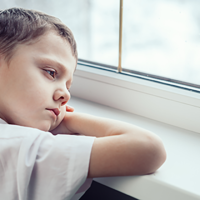Wellbeing
-

Sleep problems from infancy are linked with impaired well-being in middle childhood
Researchers in the USA and Australia have found that sleep disturbances from early childhood are associated with reductions in well-being at age 10-11 years old. Ariel Williamson and colleagues came to this conclusion after analysing data from >5,000 children enrolled in the Longitudinal Study of Australian Children – Birth Cohort.
Read more -

Children with low language ability are at risk of a poor health-related quality-of-life
Ha Le and colleagues have examined the association between low language ability and health-related quality-of-life (HRQoL) in an Australian community-based cohort of 1,910 children assessed throughout childhood.
Read more -

Online self-harm content might provide peer support to young people
Youth today find themselves living in an era of social media, with easy access to a wide range of social networking sites. Unfortunately, emerging evidence suggests that some social technologies might cause more harm than good to some young people’s mental health.1,2
Read more -

Should we pay more attention to self-esteem in young people?
Researchers in Bordeaux, France have investigated the association between self-esteem (assessed in adolescence or adulthood), with adult academic and psychosocial outcomes.
Read more -

Les Lawrence ‘To what extent will positive mental health, economic and emotional wellbeing of families, and children and young people, be considered in the re-opening of schools?’
Slides and transcript available. This was a live webinar recorded on Wednesday 8 July 2020 for ACAMH West Midlands Branch. ACAMH members can now receive a CPD certificate for watching this recorded lecture.
Read more -

“What young people think matters; a qualitative approach to the study of protective factors for mental well-being”
This blog shares findings from a new study comprising of two parts. Part one outlines a typology of profiles of adolescent reported protective factors in relation to mental well-being and the risk of mental disorder, using qualitative data. Part two applied the typology to identify trajectories of change in type membership occurring over one year, based on adolescent reports.
Read more -

Where is the I in CAMHS?
“As we enter Infant Mental Health Awareness Week, I argue that policymakers, commissioners and service providers must start thinking infant, children and young people’s mental health.”
Read more -

Most cited CAMH paper #9 of 25: Review: A systematic review of the impact of physical activity programmes on social and emotional well‐being in at‐risk youth
David R. Lubans, Ron C. Plotnikoff, Nicole J. Lubans.
Read more
Key Practitioner Message includes; Clinicians working with at‐risk youth are encouraged to consider specific physical activity programmes to support social and emotional well‐being and general health in this group -

Teacher assessments could replace high-stake testing to improve student well-being
Many students experience anxiety and distress during exams, and these emotions can have a negative effect on achievement. Notably, one of the top-reported concerns voiced by children in the UK is the stress and anxiety associated with school work and exam performance.
Read more -

Bullying
Not long ago, bullying was viewed as a normal part of childhood’s formative experiences. Over the past 50 years, since the pioneering work of Dan Olweus (1970), bullying started to be recognized as a complex public health matter and a social problem. Solid evidence has accumulated about the impact of bullying victimization on children’s and adolescents’ (hereby youth) mental health and well-being.
Read more